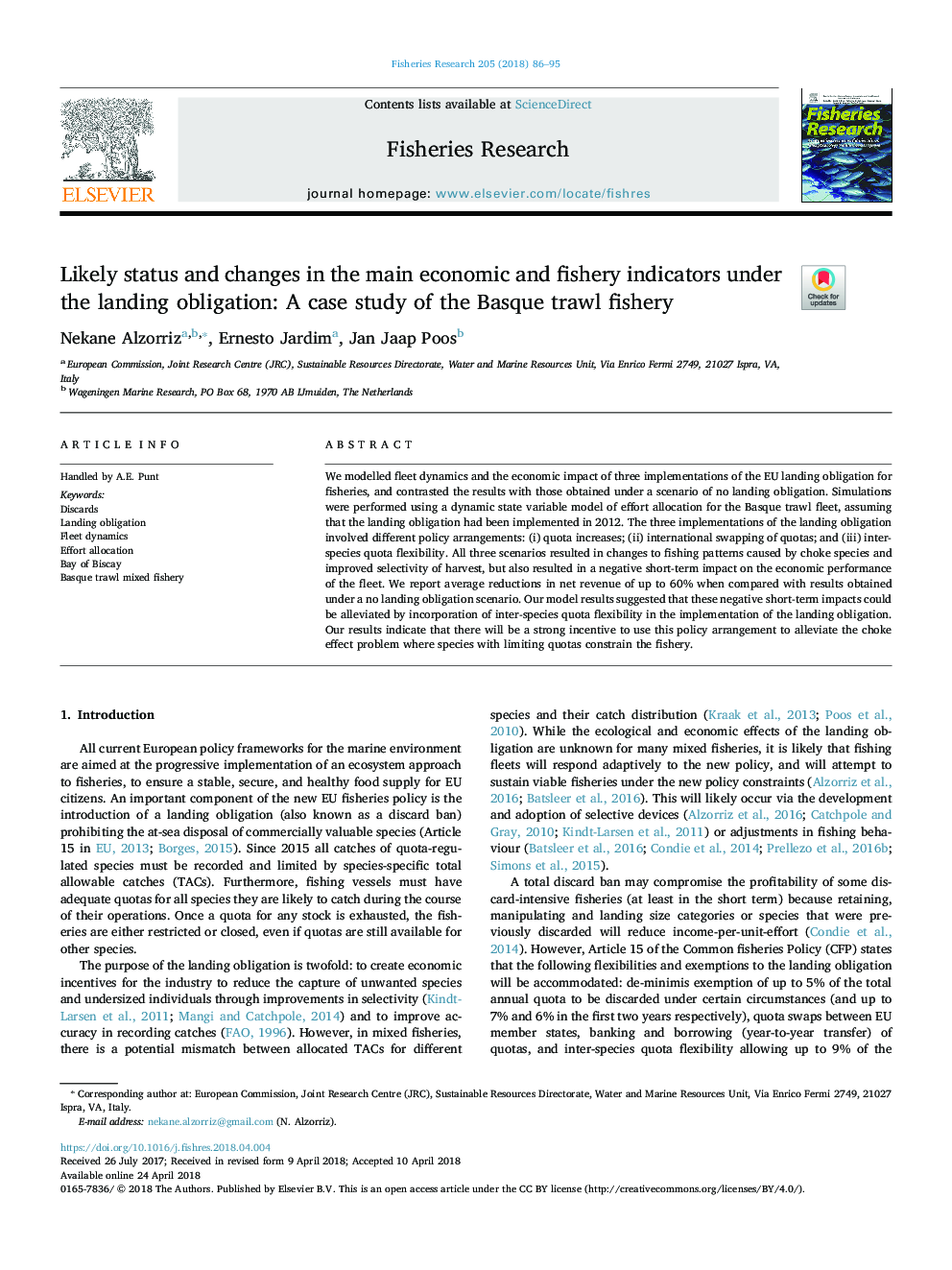| Article ID | Journal | Published Year | Pages | File Type |
|---|---|---|---|---|
| 8885327 | Fisheries Research | 2018 | 10 Pages |
Abstract
We modelled fleet dynamics and the economic impact of three implementations of the EU landing obligation for fisheries, and contrasted the results with those obtained under a scenario of no landing obligation. Simulations were performed using a dynamic state variable model of effort allocation for the Basque trawl fleet, assuming that the landing obligation had been implemented in 2012. The three implementations of the landing obligation involved different policy arrangements: (i) quota increases; (ii) international swapping of quotas; and (iii) inter-species quota flexibility. All three scenarios resulted in changes to fishing patterns caused by choke species and improved selectivity of harvest, but also resulted in a negative short-term impact on the economic performance of the fleet. We report average reductions in net revenue of up to 60% when compared with results obtained under a no landing obligation scenario. Our model results suggested that these negative short-term impacts could be alleviated by incorporation of inter-species quota flexibility in the implementation of the landing obligation. Our results indicate that there will be a strong incentive to use this policy arrangement to alleviate the choke effect problem where species with limiting quotas constrain the fishery.
Related Topics
Life Sciences
Agricultural and Biological Sciences
Aquatic Science
Authors
Nekane Alzorriz, Ernesto Jardim, Jan Jaap Poos,
